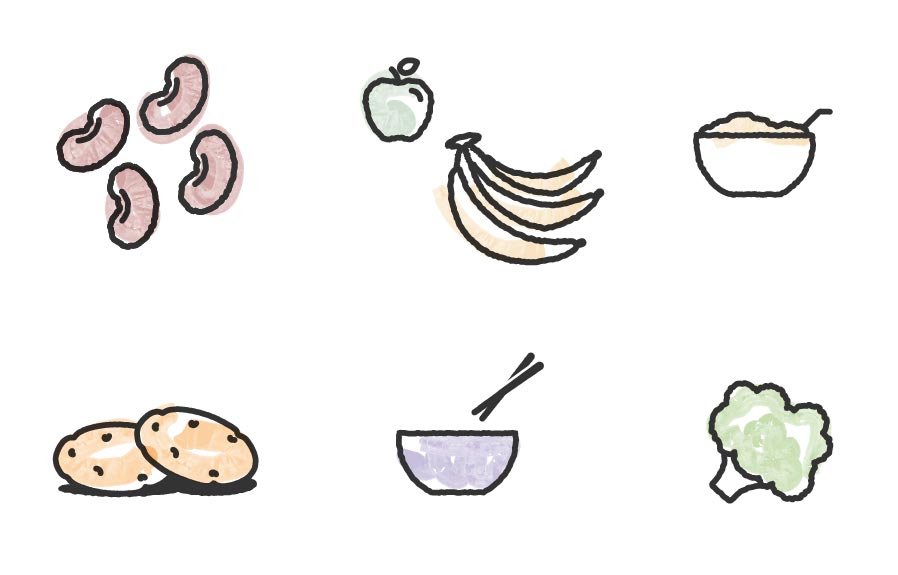Register now or log in to join your professional community.
IT IS NOT MY SPECIALTY , I am dentist master in oral surgery .
It is a subject in my certificates but is a different specificity , Doctor of feed .

Actually, no specific foods are known to trigger diverticulitis attacks. And no special diet has been proved to prevent attacks.
In the past, people with small pouches in the lining of the colon (diverticula) were told to avoid nuts, seeds and popcorn. It was thought that these foods could lodge in diverticula and cause inflammation (diverticulitis). But there's no evidence that these foods cause diverticulitis.
If you're trying to prevent diverticulitis attacks, focus on eating an overall healthy diet that's high in fiber. High-fiber foods, such as fruits, vegetables and whole grains, soften waste and help it pass more quickly through your colon. This reduces pressure within your digestive tract, which may help reduce the risk of diverticula forming and becoming inflamed.
If you think that you're having a diverticulitis attack, talk to your doctor. Your doctor will likely prescribe treatment and suggest that you follow a clear-liquid diet for a few days, gradually add in low-fiber foods and eventually get back to your usual diet. This kind of diverticulitis diet helps your digestive tract rest and heal during treatment.

I agree with experts answers, thanks for the invitation.

Low fiber foods, Hard to digest foods, Spicy Foods will increase the inflammation in diverticula . So should avoid that.


Sugary and fried food is very bad

agree with all expert answers above
Diverticulitis is a serious medical condition that is characterized by inflamed pouches in the lining of your large intestine. These pouches are called diverticula. They develop when weak spots in the intestinal wall give way under pressure. This causes the intestine to protrude through the colonic wall structure. In most cases, the pouches are located in the lower intestine, or the colon.
Diverticula often exist within the body without causing any additional problems, and become more common as you age. In fact, the pouches or bulges are rather common after age 40.
However, on occasion, diverticula can become inflamed or infected, or they may tear. The inflammation can lead to a more chronic and serious condition known as diverticulitis. Once diverticulitis begins, it may cause serious health problems, including:
Some people with diverticulitis will benefit greatly from prescription medication use, particularly antibiotics. More serious cases, however, may require surgery. In almost all cases, your doctor will suggest you adopt certain lifestyle changes to make the condition easier to tolerate and less likely to worsen over time.
A high-fiber diet is one of the first things a doctor will recommend. That’s because fiber, which is found naturally in healthier foods such as fruits, vegetables, and whole grains, can soften your body’s waste material. Softer stool passes through your intestines and colon more quickly and easily. This, in turn, reduces the pressure in your digestive system.
Fiber-rich foods include:

For decades, doctors recommended that people with diverticulitis avoid eating nuts, seeds, and popcorn. That’s because they believed the tiny particles from these foods might get lodged in the pouches and lead to an infection.
While some doctors still recommend this, most physicians have abandoned that advice because modern research has demonstrated no evidence linking those foods with increased problems.
Are All Food Recommendations the Same?While a diet high in fiber is a good general guideline, it’s not always the right choice. During a diverticulitis attack, your doctor might a clear liquid diet until your condition improves.
A clear liquid diet usually consists of:
After your condition improves, your doctor may recommend slowly adding low-fiber foods back into your diet. Once you no longer have symptoms you can resume your high-fiber diet.
Does a High-Fiber Diet Reduce Risk?Eating a diet that is rich in natural sources of fiber is beneficial for a normal digestive system, but it’s unclear if a high-fiber diet will reduce your risk of diverticulitis.
Talk with Your DoctorIf you’ve been diagnosed with diverticulitis, make sure you and your doctor discuss your food needs and restrictions. If you have not yet had that discussion, make a list of food-related questions before your next appointment. It’s important you talk about the role food plays in both helping heal and possibly aggravating the condition.
If you need additional guidance, ask your doctor to refer you to a nutrition specialist. Specifically, seek out a healthcare professional that has experience working with people who have diverticulitis. They will be able to make specific recommendations, provide recipes, and help you find ways to enjoy the high-fiber foods your diet needs.
Lastly, stay in communication with your doctor about your condition. While diverticulitis may remain dormant for long periods of time, it’s a chronic condition, and you will be caring for it for your entire life. If you start to notice your symptoms increasing, make sure you have a plan of action from your doctor that can help reduce pain and discomfort and maximize your ability to lead a normal day.




